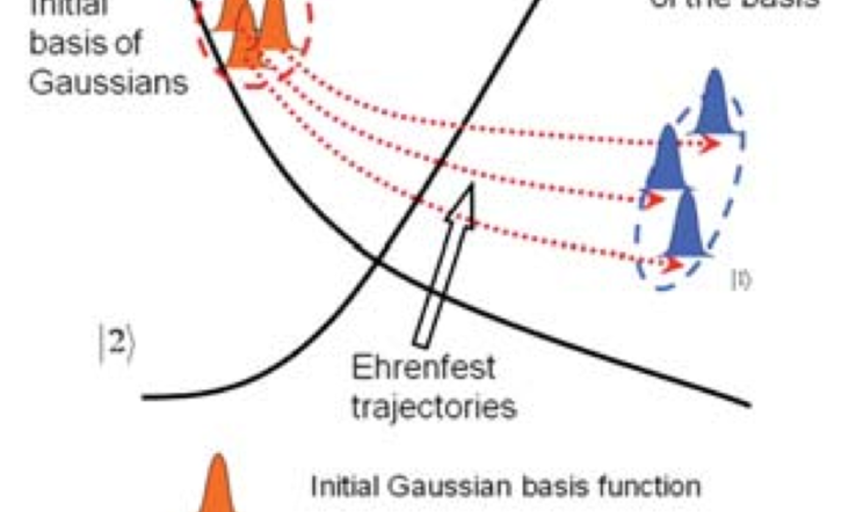Research
Theory
Theory is the science of prediction of molecular behaviour. This comes in two forms
Calculating how the molecule moves. We primarily calculate nuclear dynamics after photoexcitation - calculating the motion of the atoms in a molecule after the absorption of light. These calculations are extremely computationally expensive, so we primarily focus on smaller, simpler systems to get the most accurate results we can.
Calculating how the molecule interacts with external probes. These probes are usually a theoretical analogue of an experiment - we focus on scattering and photoelectron spectroscopy experiments, and how to predict the experimental observables that you could measure.
Theoretical chemistry is a peculiar subject. It is based on an equation that can hardly ever be solved.
Patrick W. Fowler, FRS
Experiment
Experiment is the thread that will lead us out of the labyrinth
Joseph Black
Experiments can only provide indirect evidence. To use a common example from our scattering work, the pattern of x-rays after scattering cannot be directly transformed into a molecular geometry - but comparison of a predicted structure
We use theory to predict what the experimental outcome would be, if the . To do this, we develop methods to predict the observable readings of the experiment, and then apply them to our previously calculated dynamics.
Only through comparison of our results and the experimental findings of our collaborators can we truly understand the nature of the chemistry we study.....






